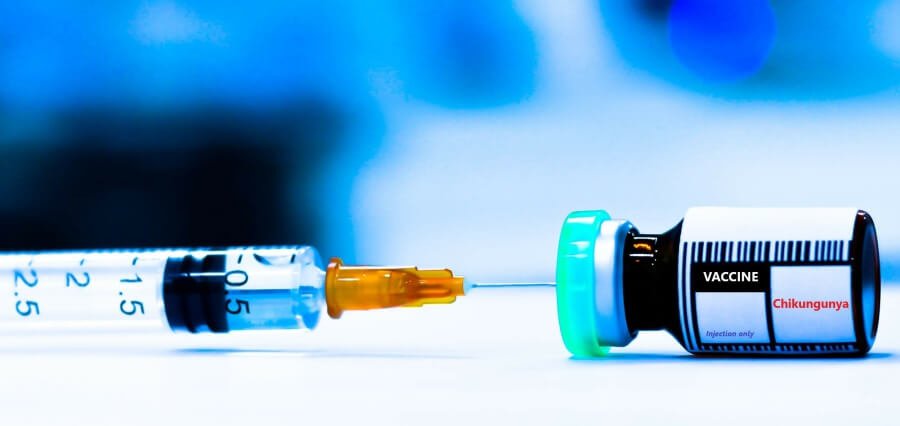When one mosquito bite somewhere sunny could ruin a decade, a new vaccine could save the day.
As of this week, Alberta pharmacies and travel clinics can now vaccinate with IXCHIQ (pronounced iks-chek) — the world’s first and only licensed chikungunya vaccine.
The shot gained Health Canada approval this summer. It could protect seven million Canadians travelling to warm destinations against chikungunya, a mosquito-borne virus that has affected millions worldwide, causing fever, severe joint pain, muscle pain, headache, nausea, fatigue and rash — with some symptoms lasting years.
Dr. Lynora Saxinger, a University of Alberta professor of infectious diseases, microbiology and immunology, said the vaccine has a long-lasting immunity and is safe.
“(Chikungunya) does have a very particular characteristic of causing kind of an inflammatory arthritis, or even if it’s not inflamed, to just more severe joint pain, sometimes for quite a long time, which is, I think, why people are interested in trying to prevent it,” said Saxinger.
“The stats on (the vaccine) look quite good. It’s something that I think aware travellers who are seeking pre-travel advice would have this on a menu of things to really consider getting. It appears to be quite safe, and it (seems to have) a good, long-lasting immunity. It’s another arrow in the quiver for travel-associated diseases.”
Technically there is a risk of mini-outbreaks in cases where returning infected travellers are bitten by local mosquitoes, which could then spread the infection by biting other people, she said.
The carriers are Aedes aegypti mosquitoes, which are day biters, and also Aedes albopictus, known as the Asian tiger mosquito, “which is freaking everyone out because it carries lots of viruses and it’s spreading with global warming,” Saxinger said.
Aedes mosquitoes have been spotted as far north as southern Ontario, she said.
Saxinger said chikungunya is considered a “growing public health threat” by the World Health Organization (WHO), and it may be going under-reported in vacation hotspots as it’s not typically being tested for.
Consider the case of traveller Bruce Wale of Victoria, B.C., who got chikungunya (pronounced chicken-gunya) on a trip to Mexico two years ago.
He suspected the extreme joint pain, fever, and exhaustion meant COVID-19.
But the symptoms worsened, leaving him in constant pain and struggling to move, especially during the challenging journey home.
After weeks of uncertainty and discomfort, medical testing confirmed it was chikungunya.
“The virus led to months of debilitating pain, forcing me to rely on painkillers to cope with joint swelling and stiffness,” Wale said.




